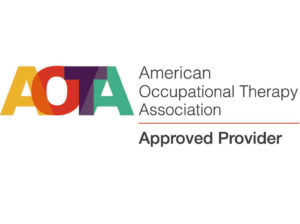Menu



To enjoy this and many similar courses for free, BECOME A NANT MEMBER today!
You may also purchase this course by clicking the Buy Now button below.
Already a Member? Make sure to log in by clicking the green Login button below to enjoy this course included in your Membership benefits.
Course Description:
Background: Feeding therapists regularly evaluate infants for signs of aspiration during feeds (1,7). When such events are detected, interventions to mitigate these occurrences are applied (1,2-6). Interestingly, it is widely accepted within the adult literature that occasional instances of aspiration are a normal variant of function that pose no deleterious pulmonary effects in healthy individuals (8). However, little is known regarding these normal correlates of aspiration in infants (9). The aim of this investigation is to fill this void by establishing objective normal correlates of feeding performance among healthy, non-dysphagic infants.
Methods: Healthy full-term infants without concerns for swallowing impairments were prospectively enrolled for home monitoring of their feeding performance. Monitoring was completed 48 hours each week throughout the first month of life and included feeding times, volume of intake, and number of feeding-related coughing episodes. Data was summarized using descriptive statistics, with changes in coughing throughout the first month of life evaluated using a paired t-test.
Results: Nineteen infants (53% female) were enrolled in the investigation at the time of abstract submission. The majority of infants (68%) coughed at least once each monitoring period, with the number of feeding related coughing episodes ranging from 0-35 times per two-day data collection period. This equated to infant’s coughing during an average of 15% of their feeds. No significant changes in the proportion of feeds with coughs were observed throughout the first month of life (p=0.13).
Conclusions: Some coughing during feeds is likely a normal variant of development among healthy term infants.
Target Audience: OT, SLP, PT, and neonatal professionals
Educational Level: Intermediate
Objectives:
Instructional Methods: Recorded webinar, lecture, and case studies. Learning assessment and course evaluation follow course.
Course Completion Requirements:
The learner must view the entire webinar, complete the course evaluation and complete the post webinar learning assessment with at least 80% to receive education credit. Login and logout times will be recorded and documented.
Following completion of this course physical therapists, nurses and other disciplines will receive a certificate of completion and a zip file containing information necessary to submit to their individual state for education credit. Zip file will include course bibliography. Physical therapists are responsible for knowing and adhering to their state’s deadlines, rules and regulations.
Speaker Bios:
Katlyn McGrattan, PhD, CCC-SLP is an Assistant Professor in the Department of Speech-Language-Hearing Science at the University of Minnesota and a Speech Pathologist at Masonic Children’s Hospital. She completed doctoral training in Health & Rehabilitation Science at the Medical University of South Carolina, and post-doctoral training in Neonatal Gastroenterology at Nationwide Children’s Hospital. Her research focuses on the use of refined physiologic assessment to identify impairments in neonatal upper aerodigestive physiology and apply targeted therapeutic interventions to maximize treatment effect.
Morgan Zoeller, MA, CF-SLP is a graduate of the University of Minnesota where she earned her master’s degree in Speech-Language Pathology. She received her bachelor’s degree in Speech-Language-Hearing Sciences from Northern Michigan University. During her graduate career she was a graduate student assistant for the University of Minnesota lab: Consortium for Pediatric Aerodigestive Advancement (CPAA) directed by Dr. Katlyn E. McGrattan. In addition, she completed clinical placements across the lifespan including pediatric acute care as well as skilled nursing facilities. Currently, she is a clinical fellow in Speech-Language Pathology working in the medical setting in both acute care and inpatient rehabilitation.
Disclosures:
Katlyn McGrattan, PhD, CCC-SLP
Financial Disclosures: Speaker receives a salary from the University of Minnesota and the Masonic Children’s Hospital. Presenter is a consultant for Biogen and Avexis and receives a grant from Biogen for SMA 1 investigation. Presenter has ownership in nuBorn Medical and Science Stand.
Nonfinancial Disclosures: No relevant disclosures
Morgan Zoeller, MA, CF-SLP
Financial Disclosures: No relevant disclosures
Nonfinancial Disclosures: No relevant disclosures
Conflict of Interest: There is no conflict of interest for anyone with the ability to control content for this activity.
Agenda:
0:00-5:00 min: Introduction to topic and course outline
5:00-25:00 min: Importance of elucidating normal infant swallowing attributes
25:00-40:00 min: Normal adult swallowing and aspiration implications
40:00-60:00 min: Case Studies: Feeding characteristics in healthy non-dysphagic infants
60:00-63:00 min: Learning assessment
Registration information:
In order to obtain access to the course, click the “Login” button at the top of the screen. You are required to be a NANT Member in good standing to have access to this course. You may also purchase this courses as a non-member by clicking the “Buy Now” button above.
For ADA accommodations, please call NANT Customer Service for more information at (866) 999-5524.
Cancellation Policy: Click HERE to review NANT’s Course Cancellation Policy.
AOTA CEUs:

National Association of Neonatal Therapists® (NANT) is an AOTA Approved Provider of professional development. Course approval ID# 03657. This Distance Learning-Independent Course is offered at 0.1 CEUs (Intermediate level, Occupational Therapy Service Delivery). AOTA does not endorse specific course content, products, or clinical procedures.

ASHA CEUs: Learners must complete the entire course in order to receive ASHA CEUs. No partial credit awarded. ASHA CE Provider approval and use of the Brand Block does not imply endorsement of course content, specific products or clinical procedures.
ASHA CE Registry users: NANT will submit ASHA CEUs to ASHA on your behalf. ASHA CEUs may take up to 100 days show on your ASHA Transcript.
Non-ASHA CE Registry users: Maintain your course records and please keep your registry status current in your NANT account. Update your NANT account with your ASHA number if your registry status changes. NANT is not responsible for tracking your registry status.
PT CE Credit: This activity has been approved by the Texas Board of Physical Therapy Examiners for 1.0 CCUs for PTs and PTAs.
NANT is recognized by the New York State Education Department’s State Board for Physical Therapy as an approved provider of physical therapy and physical therapist assistant continuing education.
*NANT 11 attendees who previously viewed this educational content may retake this course and receive CE Credit.
Questions regarding CE credit should be directed to the National Association of Neonatal Therapists at info@neonataltherapists.com or (866) 999-5524.